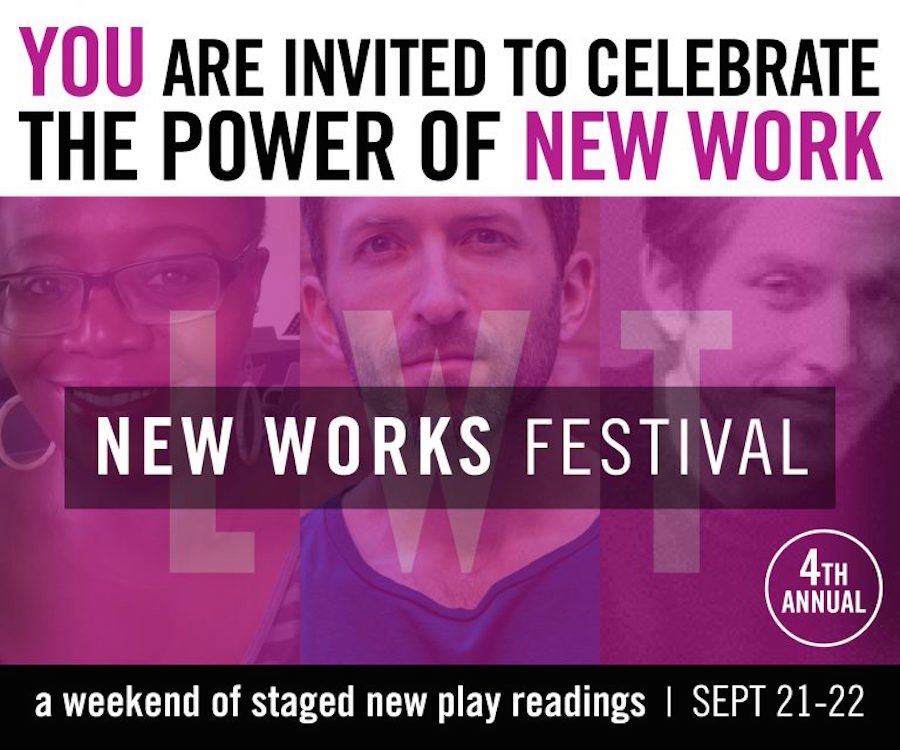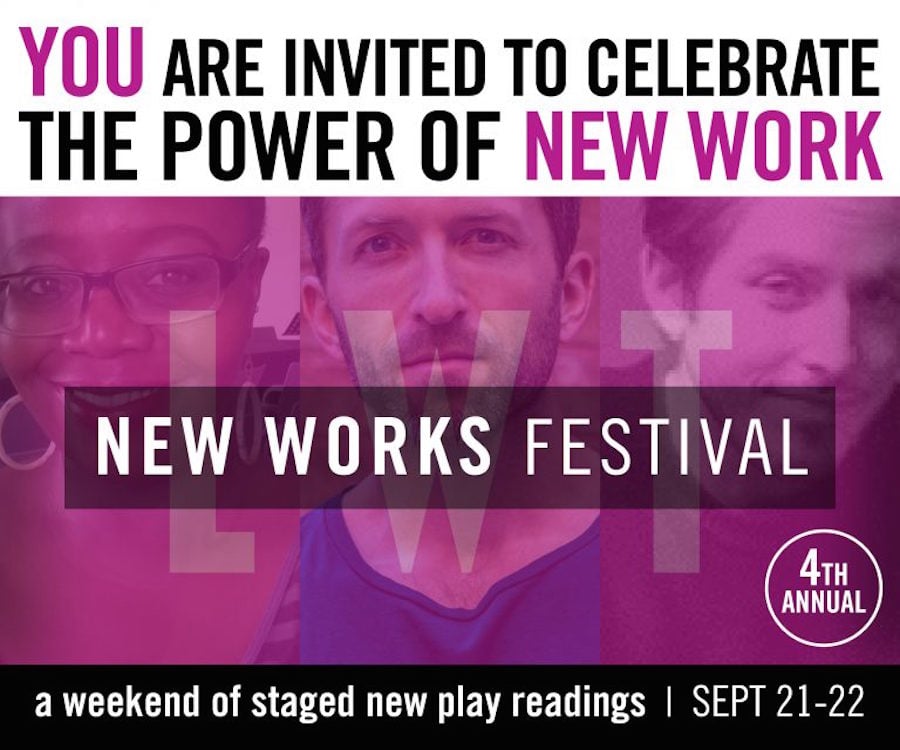
Arts & Culture | New Haven | Theater

| Long Wharf Theatre Photo. |
A family in Uganda, grappling with the truths and untruths of its past as a father returns home. Two Cleveland cops who are falling in love across race, torn apart by the shooting of a 23-year-old, unarmed Black man. An alcoholics anonymous group in Brooklyn, with members who might not have met any other way, but are bound by the ebbs and flows of their addiction.
This weekend, those stories will come together on the Long Wharf Theatre (LWT) stage as part of the fourth annual New Works Festival, renamed this year from Contemporary American Playwrights to include international work. The festival, which will feature staged readings of Angella Emurwon’s Strings, Kevin Artigue’s Sheepdog and Torrey Townsend’s Night Workers, runs Friday and Saturday at the theater.
The festival is organized and curated by Long Wharf Literary Manager Christine Scarfuto. Tickets and more information available on Long Wharf’s website.
“Long Wharf Theatre is one of the major regional theaters in the country, and I think developing new work is a kind of responsibility that we have,” Scarfuto said in an interview earlier this week. ”A responsibility, and kind of an honor. It rewires people to sit in a room together and experience something together.”
“New work is really important, because it is what keeps the art form alive and moving forward,” she added, explaining that new playwrights rarely get the opportunity to hear their pieces read aloud when their works are still young. “It gives writers a chance to hear and see the show, watch how the audience reacts, see what stories they’re invested in.”
For Scarfuto, who said she reads about 150 plays per year, this year’s selection feels particularly timely. After narrowing her selection down to six to eight of her favorite new works, she brought in a jury of other staff from Long Wharf, to shrink the list to three. Those final choices are always very difficult, she said—but they don’t mean the works that don’t make it are off the table permanently. Often, a play that doesn’t make the cut one year may be performed the following.
The festival will kick off Friday night with Emurwon’s Strings, set in the playwright’s native Uganda. Bathed in Swahili chanting and song, the play tells the story of a father’s complicated return after several years in America, during which he has been sending money home, and receiving letters back from his family. As his return draws near, family members must grapple with the revisionist versions of his life—and theirs—that they have been telling themselves and each other.
“I think it’s really interesting because we all create these idealized versions of our lives,” Scarfuto said, adding that she’s wanted to produce the play since first reading it three or four years ago. “It has us look honestly at the lives that we have.”
Then on Saturday, the festival will return with back-to-back performances of Sheepdog and Night Workers in the afternoon and evening. Set in the Cleveland Division of Police, Sheepdog unfolds in the present, as officers Amina and Ryan are falling in love, and struggle to separate their work from their lives. It’s already hard for them: Amina is Black, and Ryan is white. They work in the same place, but aren’t always treated the same way. And when Ryan shoots and kills an unarmed Black man who walked away from an officer, the relationship is pushed to a breaking point. On stage as well as in the audience, Scarfuto called it part of a “really interesting conversation that’s necessary for us to have.”
That’s also true of Townsend’s Night Workers, told entirely within an Alcoholics Anonymous meeting somewhere in southern Brooklyn last fall. As eight complete strangers become a support system, audiences enter a world of chance encounters, careful steps and missteps, spiritual resilience, and surprising connection in a year where that isn’t a given. After watching over 100 K2 overdoses unfold earlier this year on the New Haven Green, Scarfuto said the work feels particularly urgent—and also like a chance for dialogue.
She also pointed to the festival’s role as a a springboard for the works’ afterlives. This year, Sam Hunter’s virtuosic Lewiston and Clarkston, performed in the first two years of Contemporary American Voices, come to the stage as a double bill at New York’s Rattlestick Theatre. Then in January 2019, Boo Killebrew’s Miller, Mississippi will be at Long Wharf, after a stint at Contemporary American Voices in 2016 and the Dallas Theater Center last year.
“It’s a really beautiful way to slow down and be present,” Scarfuto said of the festival. “It’s a path to understanding people’s point of view, and how we change society. It creates empathy and awareness of other people’s stories.”

